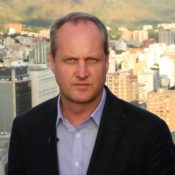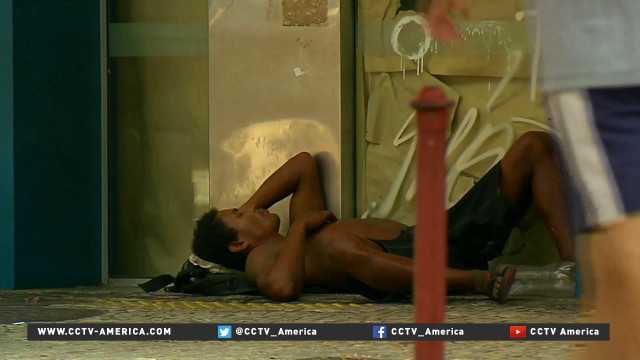According to a report issued this week by the anti-poverty charity Oxfam, the world’s richest 1 percent will soon own half of all the wealth in the world. That statistic reflects a global trend of income inequality, with the exception of Brazil.

During the first decade of this century, income rose considerably more in Brazil for its poorest citizens than for its wealthiest. CCTV America’s Stephen Gibbs reported this story from Rio de Janeiro.
Vilma Pimental is, statistically, part of a Brazilian success story. She’s one of millions that have helped to narrow the massive gap between the rich and the poor in Brazil.
Pimental said her secret is mainly hard work. She has two jobs, working as a domestic maid and selling cosmetics.
“Things have got better, there’s a lot of work, and there’s more opportunity in terms of classes and education,” Pimental said.
Brazil is home to more than 200 million people, and is by no means an equal society — The gap between rich and poor in Brazil remains among the world’s widest, and far greater than the wealth gap in United States. However, over the last 20 years it has achieved economic growth without the economic divide getting wider.
Brazil’s success in reducing income equality comes despite the fact that it is a developing country. Developing nations usually find that as their economies begin to grow, so too does the gap between rich and poor.
“When a country stops growing, or has a very low rate of growth, or is very poor, inequality is also very low,” Rodrigo Leandro De Moura, an economist for the Getulio Vargas Foundation said. “But when a country grows you’d expect more inequality during the transition period.”
Some have said Brazil’s success is a result of President Luiz Inacio Lula da Silva. He was elected in 2002 and was the first Brazilian president to have known poverty first hand. The president once worked as a shoe-shiner, and vowed to distribute the country’s wealth more fairly.
His presidency also coincided with a unprecedented boom in the price of Brazil’s commodity exports, leaving no shortage of money and jobs.
The Lula government expanded social welfare schemes, including one in which the poorest Brazilian families are given cash handouts as long as they fulfilled certain conditions, including that their children attend school.
Deborah Hardoon of Oxfam Int’l discusses global wealth inequalities
CCTV America interviewed Oxfam researcher Deborah Hardoon about the organization’s recent report on global income inequality.

 CGTN America
CGTN America

